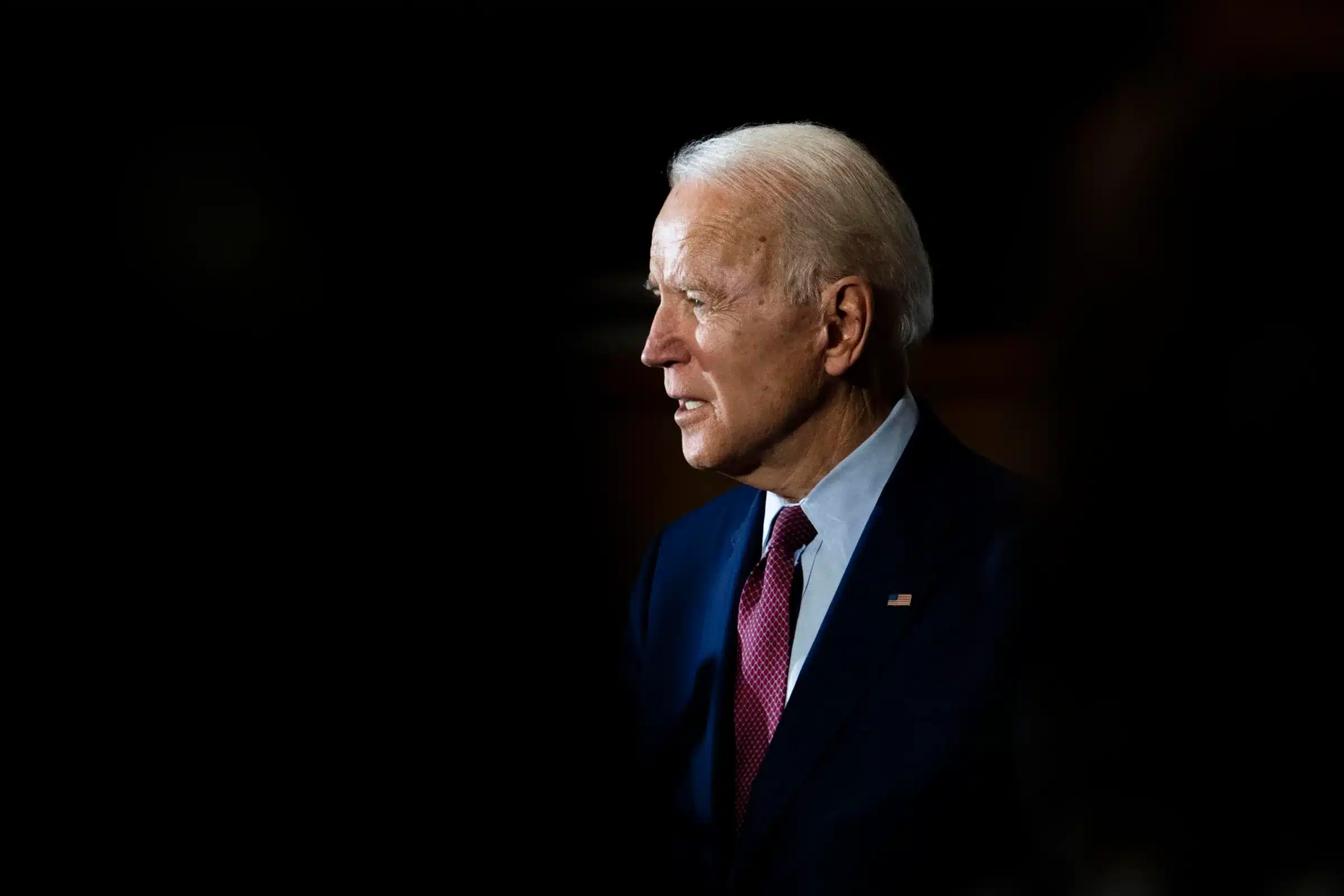The United States of America, the epicenter of global power, is about to complete another landmark presidential term. National elections are approaching and are expected to take place in November. During these four years, the Biden Doctrine emerged. The administration strove to redress the fallacies committed by the Trump administration at both domestic and international levels.
A Shift from the Trump Era
It is crystal clear that when Biden took the reins of power, he found America at the cusp of losing international credibility as a hegemon. Trump had pulled out of international organizations, mainly the WHO and the Paris Agreement. These organizations are where the U.S. draws legitimacy to lead global affairs.
Furthermore, the Trump administration amplified the trust deficit between the U.S. and its allies. It even threatened to withdraw from the responsibilities of shouldering the burden of NATO. At home, Trump derailed the strongest democracy and put it in dire straits. His Republican partisans purportedly fulminated at Capitol Hill, undermining the sanctuary of democratic values and norms that had prevailed in the country for centuries. Protectionist policies, which aim to protect infant domestic industries, bolstered polarization in the country. These policies also halted economic ties with significant trade partners. In this era, marked by deepening geopolitical rifts, the emergence of the “Biden Doctrine” heralds a recalibrated U.S. foreign policy aimed at restoring the country’s glory and image.
Domestic Challenges Under Biden
Nevertheless, Biden’s domestic policies were far from perfect. His administration faced intense criticism over surging inflation—reaching a 40-year high in 2022—which strained middle-class Americans. While the government aimed its stimulus efforts at economic recovery, these efforts arguably exacerbated inflationary pressures amid supply chain disruptions, frustrating many citizens. Similarly, his ambitious student loan forgiveness plan stalled amid legal challenges, further eroding trust among younger voters.
Key Aspects of Biden’s Foreign Policy
Biden, a Democratic president, confronts a majority of Republicans in the House of Representatives. Alongside Vice President Kamala Harris, he adopted a foreign policy approach characterized by a mix of old-school diplomacy. This approach bolsters and emboldens economic and strategic alliances while committing strictly to multilateralism. Unsurprisingly, the Biden administration also faces challenges from revisionist China in the Indo-Pacific region. Additionally, it deals with the Russian invasion of Ukraine and the ongoing Israel-Hamas conflict in the Middle East.
Strategic Alliances and Global Challenges
One of the cornerstones of Biden’s foreign policy was a return to the era of multilateralism. This marked a stark contrast to his predecessor’s “America First” approach. Biden vowed to rejoin and reengage with international institutions, particularly the Paris Agreement, which pertains to climate change adaptation, and the World Health Organization (WHO). In addition, the administration made improvised efforts to revive ties with old allies, predominantly NATO members and the European Union.
In the Biden era, NATO membership also grew; Finland and Sweden left their longstanding “neutrality” and joined the Western club. Contrary to “America First,” he raised the slogan “America is back” to restore the trust eroded during the Trump era. Biden’s statecraft resulted in NATO allies supporting Ukraine in response to Russia’s invasion. They provided military aid and imposed severe sanctions on Russia, affecting gas supplies. These moves underscore his belief in collective action as a necessary response to global threats like climate change and pandemics.
Controversial Decisions and Their Consequences
However, Biden’s foreign policy decisions were not without controversy. The most significant debacle came with the chaotic withdrawal from Afghanistan in August 2021, marking the end of America’s 20-year involvement in its longest war.
Ending the Afghanistan war was a campaign promise and viewed by many as inevitable, given the waning public support for the conflict. Yet, the manner in which the withdrawal was executed led to widespread condemnation.
The Afghanistan Withdrawal
The rapid collapse of the Afghan government and the swift takeover of Kabul by the Taliban surprised both U.S. officials and their allies. What followed was a chaotic evacuation effort. Desperate Afghan civilians and allies scrambled to flee the country, culminating in tragic scenes at Kabul airport. This included the loss of 13 U.S. service members in a terrorist attack.
Despite successfully evacuating over 120,000 people, critics heavily targeted the Biden administration for failing to anticipate the rapid fall of Afghan security forces. Many largely supported the decision to withdraw. However, the botched execution left a lasting stain on Biden’s leadership. It raised serious questions about U.S. intelligence assessments and strategic planning. The fallout from the withdrawal undermined America’s global credibility. It left many allies anxious about similar future crises, casting doubt on Biden’s overall foreign policy approach.
The Israel-Palestine Conflict
On the contrary, the faltering leadership of Biden also faced criticism over his inability to halt Israel’s assaults on Palestinian civilians, predominantly non-combatant children and women in the Gaza Strip and West Bank. The long-standing position of the U.S. on the Israel-Palestine conflict favors a two-state solution by curbing Israel’s illegal settlements and eliminating violence-based organizations like Hamas to provide a security umbrella to its close allies in the Middle East. Despite this, Biden’s administration, influenced by strong domestic political pressures, particularly from the Jewish lobby, failed to meaningfully press Israeli Prime Minister Benjamin Netanyahu to de-escalate aggression.
Trade Relations with China
Not surprisingly, Biden has continued to raise the tariffs that Trump imposed on Chinese imports, whether wittingly or unwittingly, perpetuating the legacy of Trump’s trade protectionist policies. More intriguingly, this time Biden focused on the high-tech industry and clean energy products. He demonstrated the effectiveness of these measures by enacting sanctions, outlawing certain exports, and providing subsidies to the domestic energy sector to increase domestic output and slow the growth of the Chinese technology industry. Yet, these tariffs also perpetuated tensions with China and failed to fully address underlying trade issues, leading to retaliatory measures and hampering diplomatic relations.
Arms Control and Nuclear Challenges
In addition, Biden faced criticism for falling short on nuclear arms control. While he expressed strong commitments to nonproliferation during his time in the Senate and as vice president, his administration dithered on resolving the significant issue of reviving the Iran nuclear deal (JCPOA). Trump’s withdrawal from the hard-won accord that Iran was following in 2018 was seen by Biden as a major setback, yet his team’s mixed signals and attempts to appear tough on Iran have failed to bring the deal back on track. Biden also discarded nonproliferation factors while negotiating the AUKUS accord, which allowed highly enriched nuclear material to be transferred to Australia, raising concerns about the future of nuclear arms control. Coupled with Putin’s suspension of the New START treaty and China’s growing nuclear arsenal, Biden’s inaction on arms control raises significant concerns for global security.
The Biden Doctrine, In a Nutshell
To cap it all, the Biden Doctrine abated the sufferings of the U.S. on the international stage by rejoining international organizations, offering incentives to existing allies, unveiling new multilateral pacts, revitalizing relations with China, and supporting Ukraine’s cause against Russia’s aggression. However, his domestic shortcomings, ranging from inflation to unresolved immigration crises, and his failure to address key issues like nuclear proliferation, tarnish his legacy. Furthermore, his continued protectionist policies aimed at curtailing Chinese development reflect the challenges of balancing international competitiveness with cooperation. The world is changing so quickly that it is impossible to predict how Biden’s brief presidency will fit into the flow of history; however, it can be concluded that despite the signs of crippling political polarization at home, the Biden doctrine has made significant changes in foreign policy—not to accommodate American decline, but to reflect the nation’s inherent strength of history.
The views expressed in this article are the author’s own. They do not necessarily reflect the editorial policy of the South Asia Times.




![Afghan men search for victims after a Pakistani air strike hit a residential area in the Girdi Kas village, Nangarhar province on February 22, 2026. [Aimal Zahir/AFP/Getty Images]](https://southasiatimes.org/wp-content/uploads/2026/02/gettyimages-2262391441.webp)


